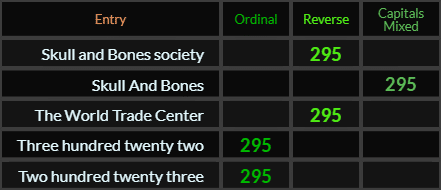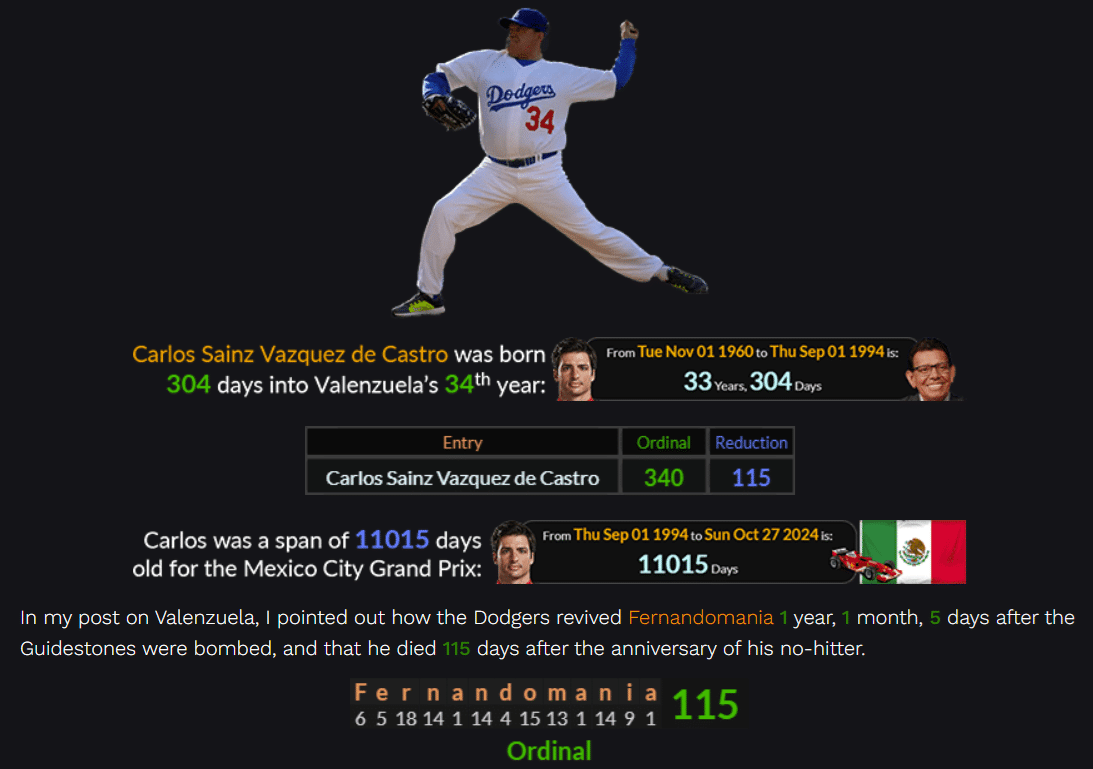How I Successfully Picked Carlos Sainz for the Mexico City GP
At 47:26 of my last video, I put forth a riddle that revealed my pick for the Mexico City Grand Prix. It was Carlos Sainz who was born on September 1st, 1994 – exactly 300 months before Charles Leclerc’s maiden victory. Leclerc is the godson of the late Jules Bianchi, a relationship I’ve examined in-depth on this Blog.
Sure enough, it was a weekend of dominance for the Spaniard, who clocked in the two fastest laps of Qualifying. Although Carlos lost the lead to Max at the start of the Grand Prix, he snatched it back only two laps after the restart, and held a comfortable lead all the way to the end.
In a field of 20 drivers, 7 of whom are race winners this season, I’ve gone 4 of 8 when selecting a winner. With an equal wager on each race, I would be up 34 betting units, meaning I’d have a $340 with a $10 bet on each race.
It would be one thing had I been making picks when Verstappen was winning every race, but none of those wins were with Max. I’ve had 18-to-1, 12-to-1, and 7-to-1 winners in there. Even though I lost three races in a row, I still find this to be sensational.
I never set out to bet on the sport when I began covering it this year. Instead, I simply began the season by documenting the massive synchronicity F1 shared with major mainstream world news. After a few months of learning about the sport and its history, I came to the realization that future race winners were being coded into stories from the prior week, and thought it would be fun to see if I really was correct.
I’m not philosophically opposed to sports betting, but I also understand its draw for people with addictive personalities. I’ve been against making more speculative posts on sports than I already do, because I don’t want to have anything to do with anyone losing significant amounts of money. I’ve found that people who don’t even have a strong disposition to bet on sports may find themselves wagering exorbitant amounts of money after discovering numerology, because they are able to see how truly magnificent what we teach is.
So I must urge everyone – only bet what you can afford to lose. If you’re lucky enough to win, cash out when you originally invested so that you’re only playing with house money. If you lose when you put in, take a break and come back another time.
On Sunday, Carlos increased his careeer win total from 3 to 4.
Fernando Valenzuela wore #34, the number painted on the mound for the World Series:


He was the only one to score a qualifying time in the 1:15‘s.

In my post on Valenzuela, I pointed out how the Dodgers revived Fernandomania 1 year, 1 month, 5 days after the Guidestones were bombed, and that he died 115 days after the anniversary of his no-hitter.

The beloved Dodgers pitcher and announcer threw one no-hitter in his career, and it took him 119 pitches to finish it off. He signed with LA 119 days before his birthday, and died 119 weeks after the Georgia Guidestones were destroyed.




The 119th Prime number is 653

This was Ferrari’s 247th win

The World Trade Center was brought down on 9/11
911 is the 156th Prime number, and Thirty-three = 156



33 and the 33rd Prime number, 137, were the numbers I mentioned in the very next section of my first post. Fernando Valenzuela Anguamea = 137 had his number retired 1 year, 37 days after the Guidestones were bombed. He started his Major League career at exactly 1037 weeks of age and played in his final game on a date with 137 numerology.


373 is the 74th Prime number



This was Carlos’s 202nd Grand Prix


Sainz is the only driver on the grid born in 1994:
Carlos is known as the Smooth Operator, a song he’s sung over the radio after wins. I thought it was interesting that Valenzuela died exactly 2095 weeks after the release of that song.




